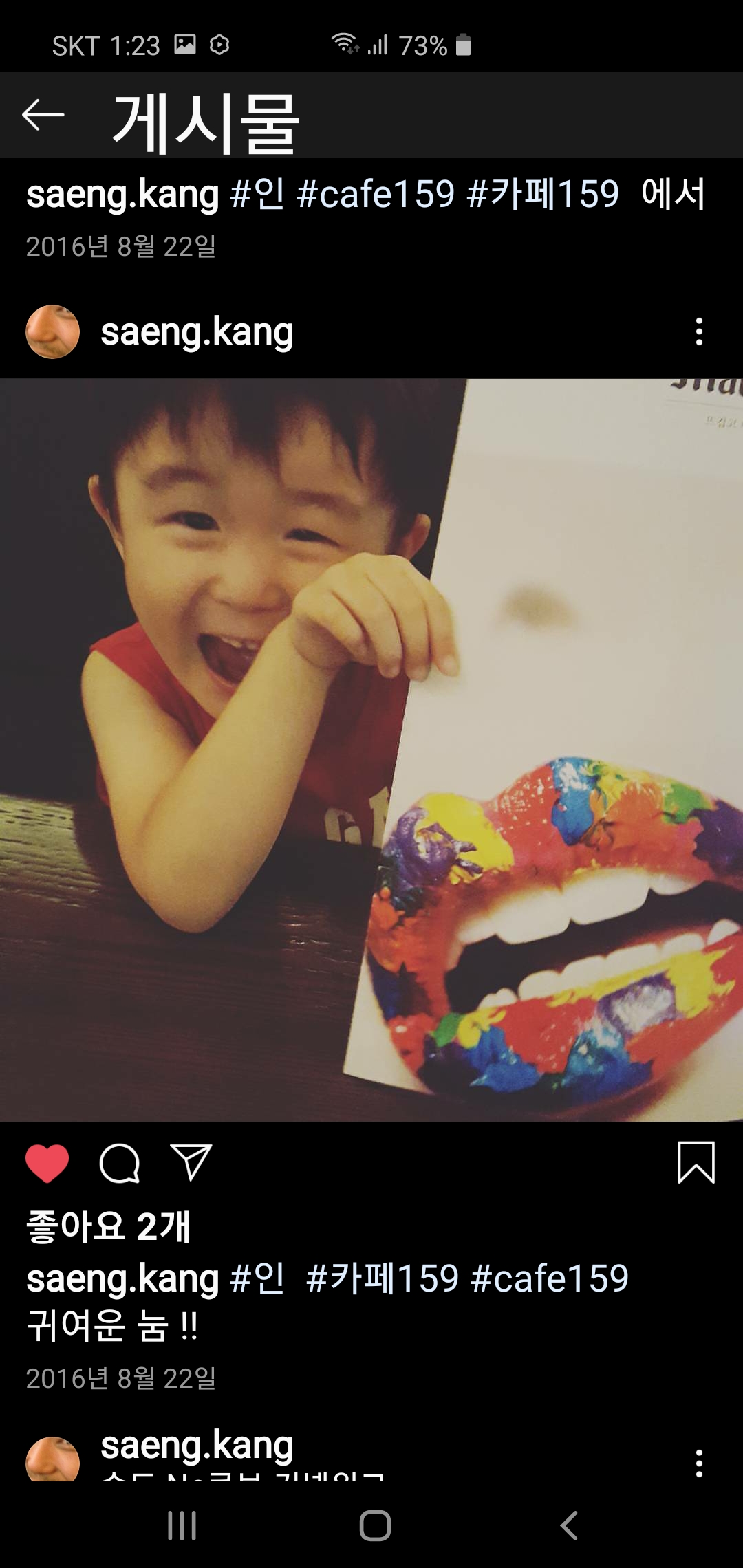Unit 1035. 엘리베이터에서 # 엘리베이터 is going up / down # 대상 + be + going up / down This elevator is going up. Are you going up or down? I'm waiting for an elevator going down. Take that elevator if you're going to an even floor. Which floor are you going to? Is this going up or down? > We're going up. I'll take the next one down then. > See you later then.
Unit 1034. 물건 빌리고 빌려줄 때 # borrow + 빌릴 것 / 빌려줄 것 Can I borrow your umbrella? He borrowed your presentation remote. Where did you borrow it from? Who borrowed my utility knife without asking? You can borrow my external battery. Hey Pat, where's my hole puncher? > What hole puncher? The one that you borrowed last week. > Oh, I totally forgot. I'm sorry, it's on my desk.
Unit 1033. 음식 메뉴를 정할 때 #. have + 음식 + for breakfast / lunch / dinner What do you want to have for lunch? I'll have a linguine for lunch. What did you have for breakfast? I had a sandwich for lunch. Are you free for lunch? What did you bring for lunch? > I didn't pack a lunch box today. Oh, let's have something for lunch then. > Good. Where do you want to go?
Unit 1032. 간단한 식사 제안할 때 #. How about we grab + 음식? How about we grab a bite? How about we grab some lunch? How about we grab a coffee / grab some coffee / grab cup of coffee? How about we grab a salad? How about we grab a smoke? What time do you want to have lunch today? > Well, I don't know. I'm kind of busy right now. Hey, how about we grab a sandwich for lunch? > Sandwich? That sounds good. G..
Unit 1031. 안부 대답하기 #. 대상 / 일 + be + doing / going + 형용사 I'm doing great. I have been doing well. (It's) nothing much. Everything is fine. (It's the) same old, same old. How are you and Amy doing? > We're doing great. How are things for you? Same old, same old. Nothing too exciting. > You should come over for dinner sometime.
Unit 1030. 안부 묻기 #. How + be + 대상 / 일 + doing / going? How are you doing? How have you been doing? How are your kids doing? How is your job going? How are you settling into your new job? Jason called the other day. > Did he? how is he doing? He's busy settling into his new job in New York. >I should text him and see how things are going?
Unit 1029. ~ 에 가는 중일때 #. 대상 + be + on one's / the way I'm on my way to work. Are you on your way here? I got into on accident on my way to work. We got lost on way the way to the factory. There was heavy traffic on the way to work. Hey, are you on your way? > Yeah, sorry. There is a lot of traffic on this highway. No worries. Everyone else is on their way too. > Okay, I'll see you soon!
Unit 1028. 일과를 끝낼때 #. call it a day / night Let's call it a day. How about we call it a day? We called it a night at 10 p.m. Are we calling it a day or continuing? My boss won't call it a day until the work is finished. We've had a long day of meetings? > How about we call it a day? Yeah, I think everyone's had enough of work today. > Sure, let's just pick up where we left off tomorrow.
- Total
- Today
- Yesterday
- too.
- I'm glad to hear that.
- please?
- well
- Sorry
- Hey
- Please
- I'm sorry
- Yes
- Thanks
- Don't worry
- Actually
- Oh No
- OKay
- Sure
- I'm not sure
- By The Way
- Tell me about it.
- OK
- Right?
- What Happened?
- make it
- Excuse me
- work out
- no
- Yeah
- pick up
- please.
- hold on
- oh
| 일 | 월 | 화 | 수 | 목 | 금 | 토 |
|---|---|---|---|---|---|---|
| 1 | 2 | 3 | 4 | 5 | ||
| 6 | 7 | 8 | 9 | 10 | 11 | 12 |
| 13 | 14 | 15 | 16 | 17 | 18 | 19 |
| 20 | 21 | 22 | 23 | 24 | 25 | 26 |
| 27 | 28 | 29 | 30 |
